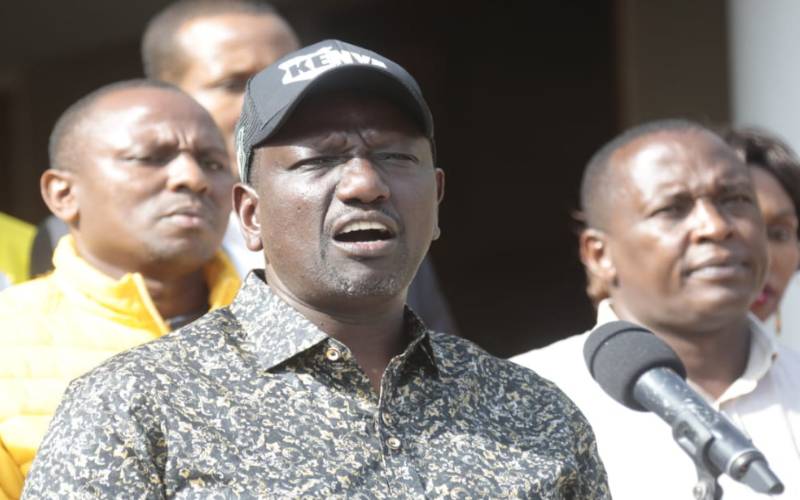×
The Standard e-Paper
Join Thousands Daily

Deputy President William Ruto addressing journalists at his Karen residence in Nairobi on April 4, 2022. [Boniface Okendo, Standard]
Deputy President William Ruto on Monday, April 4 said he’s been forced to take up opposition role due to circumstances.